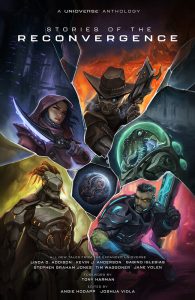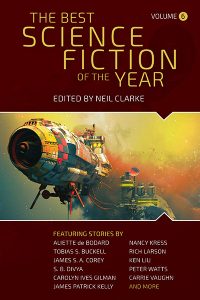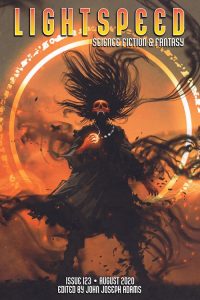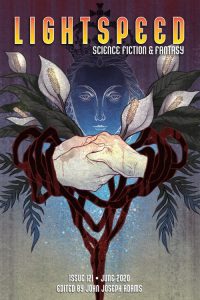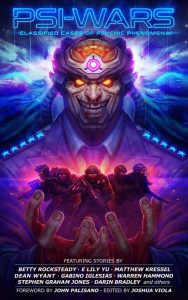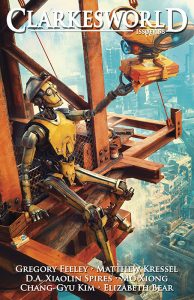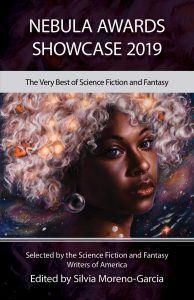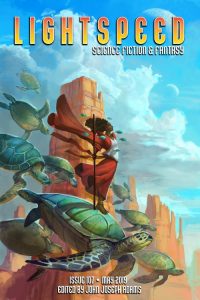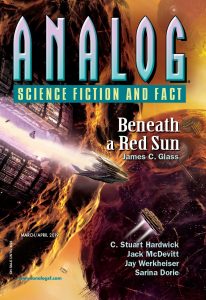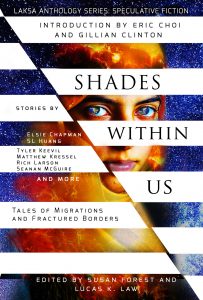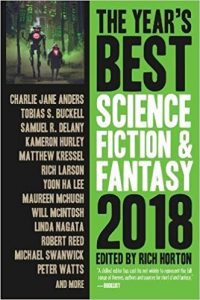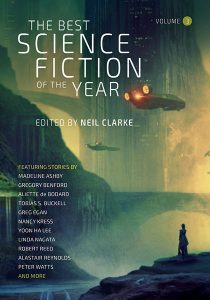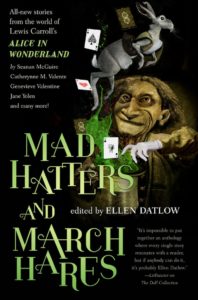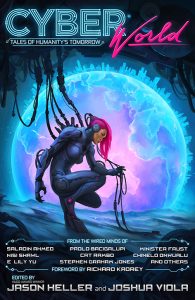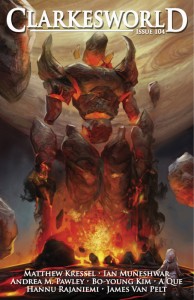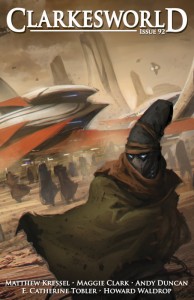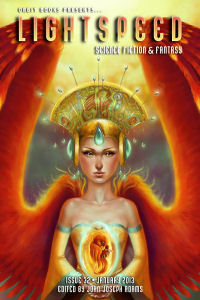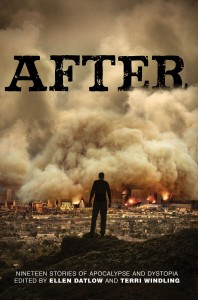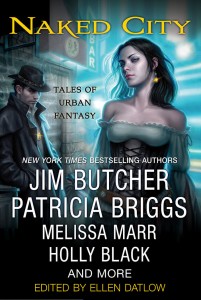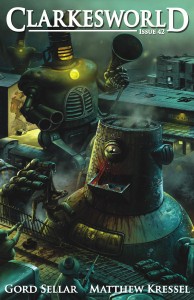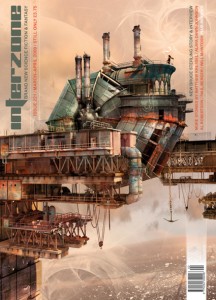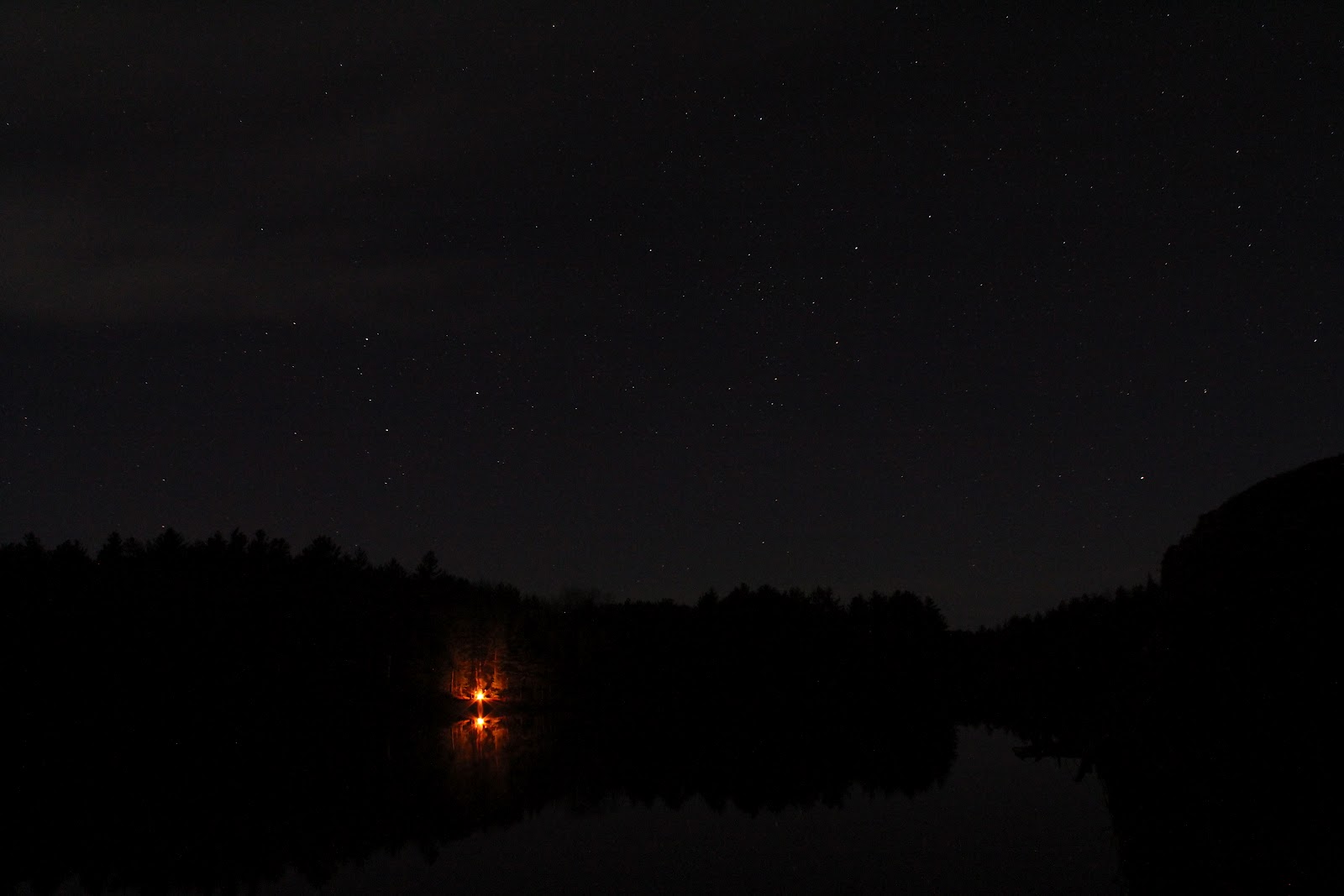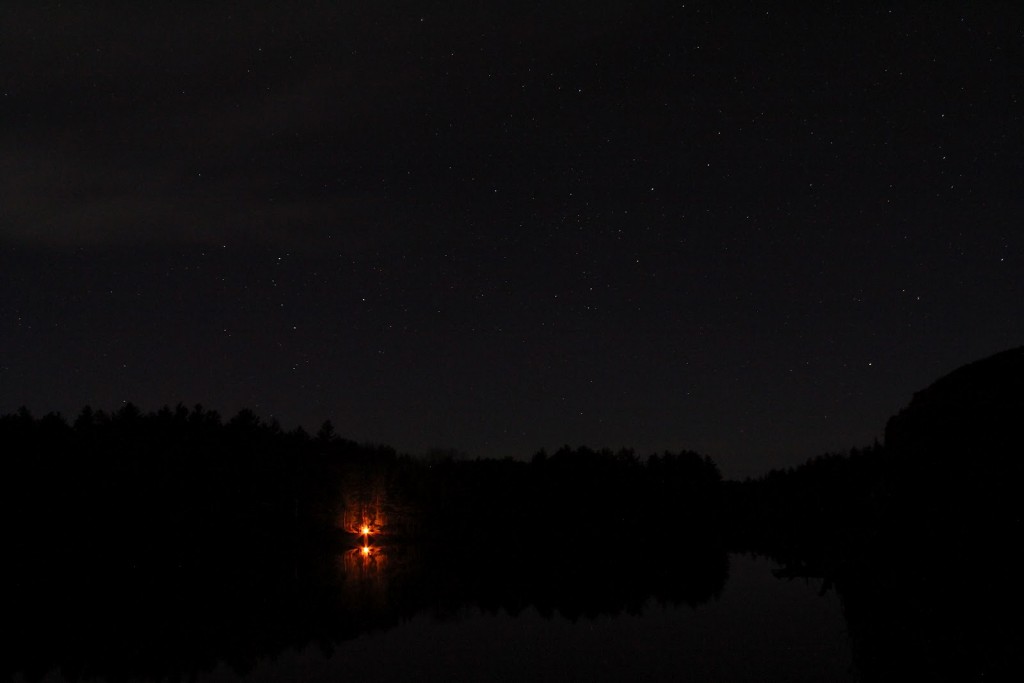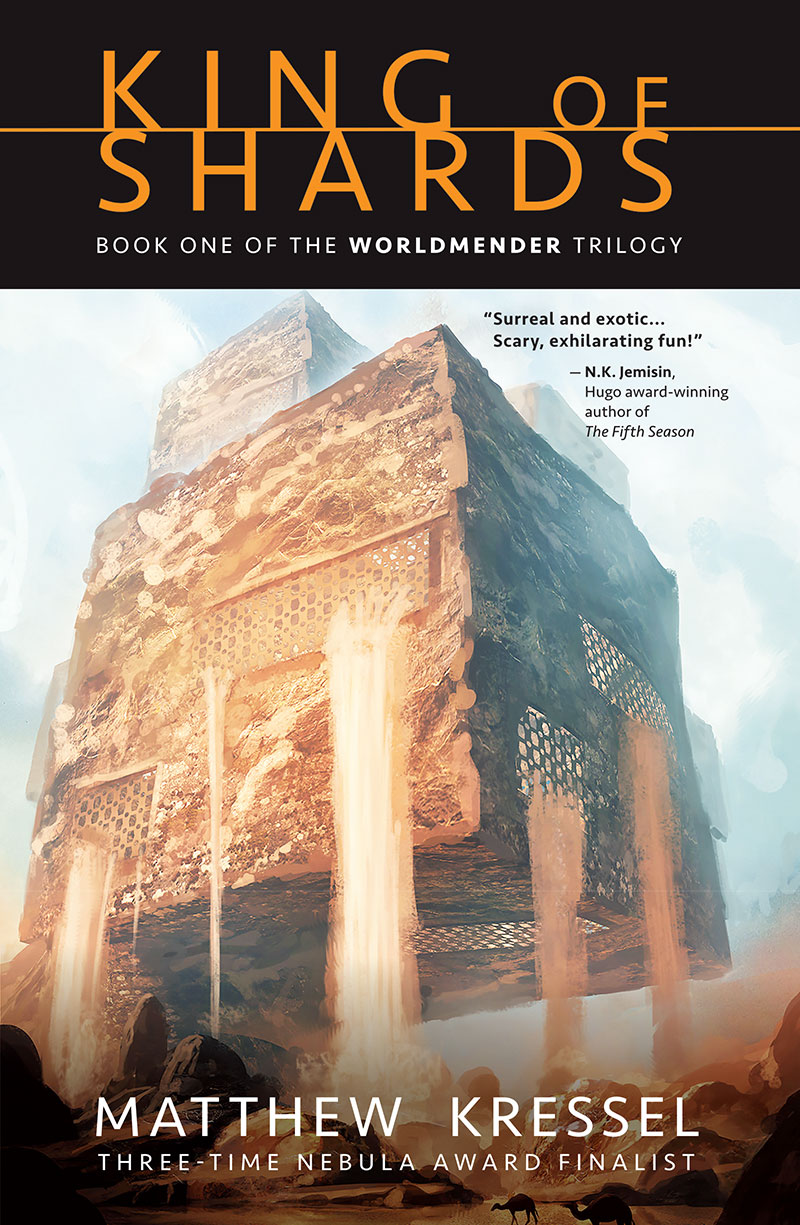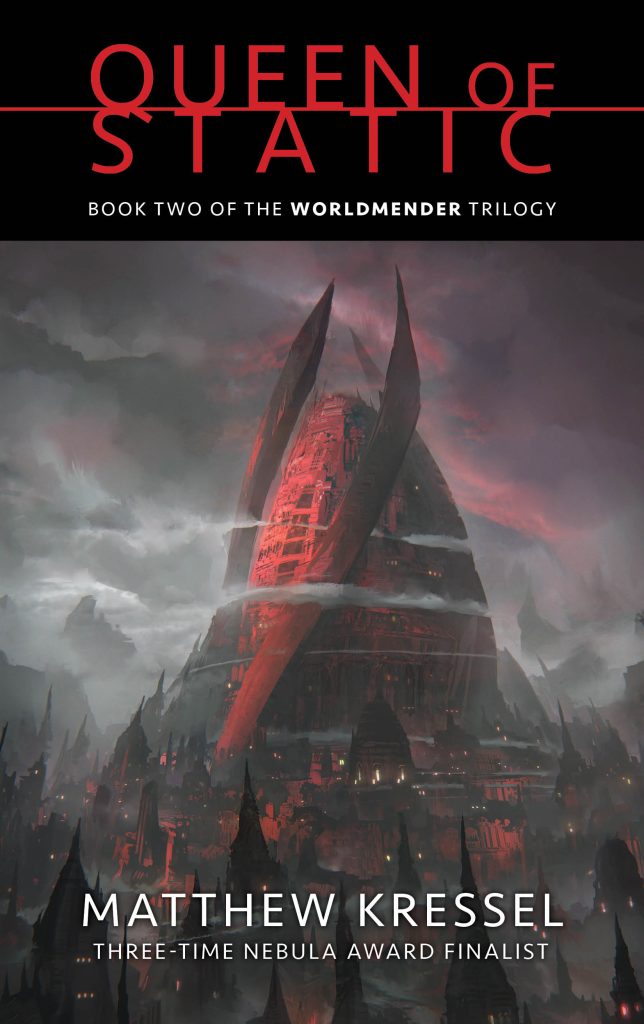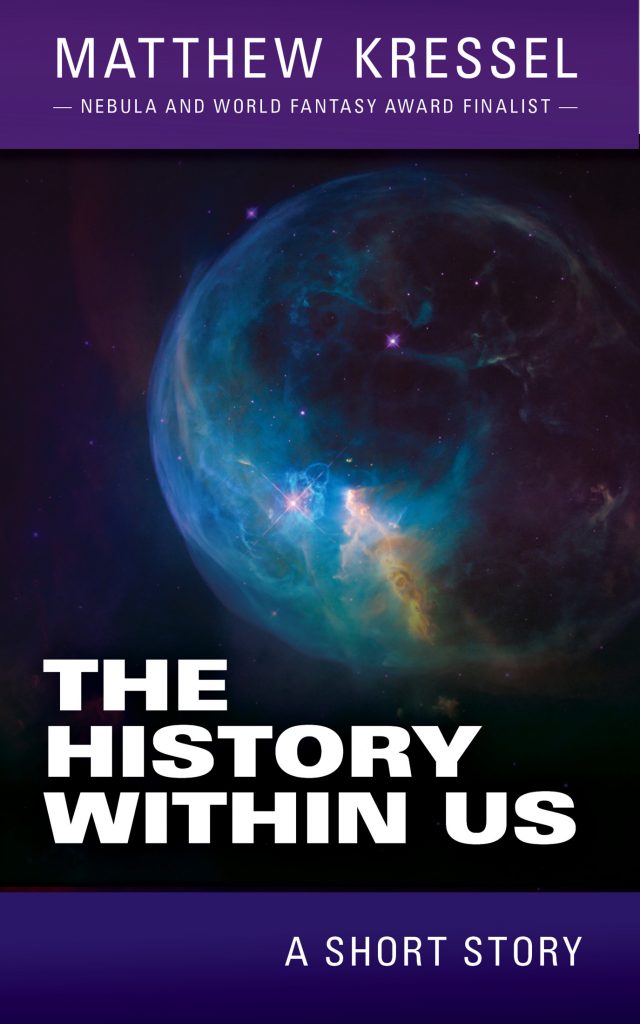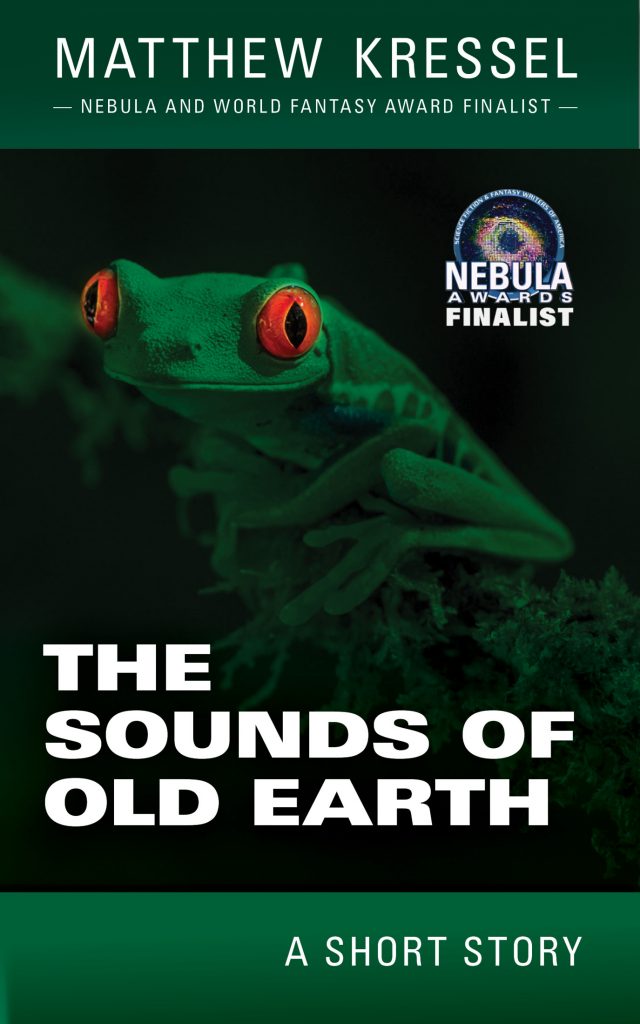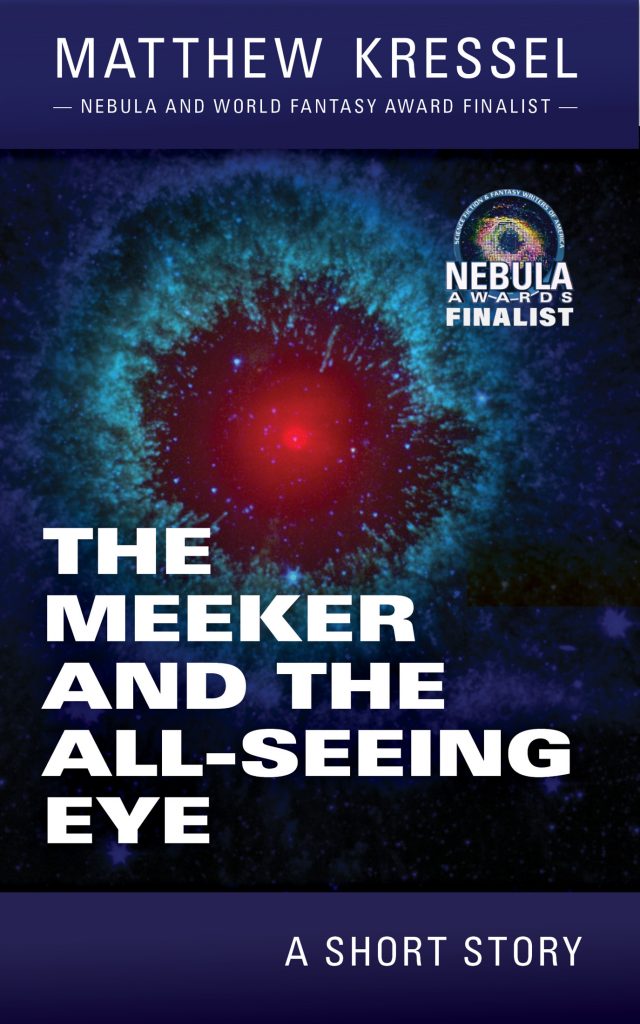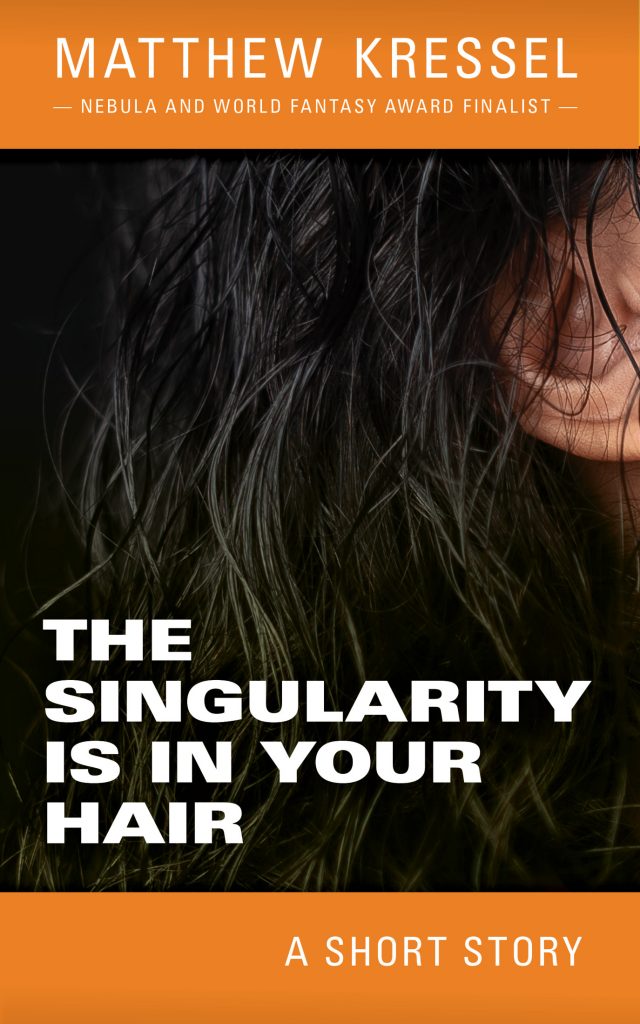The winter solstice holidays have as a common theme the abundance and proliferation of light. And there’s so much of it because our ancient and primordial fear of the dark still haunts us. And so we make our homes and our workplaces as bright as possible during these weeks that are the darkest of the year. We decorate our houses, light our Christmas trees, our menorahs, and our kinaras. And so for a week or two or three our homes and workplaces aren’t as dark, and we can forget that we live in a universe that is mostly cold, empty space.
But never here. Here on Earth we are so terrified of the dark that even at night, even when we are asleep, our cities are so bright they can be seen from space. The human species hates darkness. Unknown monsters lurk there, waiting to attack the tribe.
The future is such a monster, and we do everything in our power to hide from it.
The future is dark, less knowable the further out we look, just like that ancient campfire, as our ancestors sat and stared past the fading firelight and wondered what lay beyond that dark horizon. And so, fearing this future, this darkness, we throw as much light possible on the present moment, in our immediate zone of space and time and temporarily fool ourselves into forgetting that tomorrow is not yet illuminated.
Some alleviate this fear of the unknown future by plunging into religion, into devotion to gods or goddesses that promise redemption at the end of a long journey, that promise that the tortured and violent story of the human race will end in a predictable, redemptive way, that tomorrow is known. This is why astrology and religious prophesy are so alluring, for they promise certainty, freedom from fear. But for those whom such ideas are foreign, for those who don’t think some great god will swoop down one day to rescue the righteous and bring them into the happily ever after, slipping into the fantasy of redemption appears grotesque. But with an unknown, unpredictable future, and with no savior to light the path to redemption, those who choose not to believe are left with darkness.
Some choose the nihilistic path. All is meaningless in an immense, cold universe that cares nothing for humankind. Might as well enjoy life while we can. YOLO, Carpe diem, Gather ye rosebuds, “I’d rather die a gangster then go to sleep a coward [sic]“. Or maybe it’s humor, laugh till your dead. Or drugs or alcohol. Most people’s go-to drug of choice, to prevent them from having to look the unknown square in the face, is shopping.
You see it around the holidays. On Black Friday, the day after Americans spend Thanksgiving day being thankful for the things they have, they run out to buy things they don’t need. Cyber Monday is for those who prefer to shop in pajamas. The allure of the product is its prophesying power. You don’t buy a product (clothes, tech, furniture) for immediate use. You buy it for how you will use the product in the future. The clothes will make you appear a certain way, some days from now. The tech will improve your life at work. The couch will make your life more comfortable when you watch TV at night.
In the absence of religion, of faith in the perfect course of history, we use the purchasing of goods to assuage our fears of the future. Money, and the more the better, becomes our security blanket. It is Herbert’s “spice” in the Dune novels. The more we have, the more we think we can predict the future, the more secure we feel. But it changes us, so that those who are immersed in it (read: the super rich) become grotesque mutations. We use money to buy products, which temporarily relieve the fear of our unknown tomorrows. But eventually that dress we bought loses its appeal, that video game gets played out and Apple comes out with a new iPhone that’s got more megapixels. TV nights on the couch feel just as empty as they were before we had the comfy couch. Maybe if we bought a sports car….
This is the cycle of Western consumerism, fed by a growing population who sees no evidence of an omniscient being with our best interests at heart, who sees the problems of the world as proof that there is no one watching over us, who grows increasingly insecure based on media reports of disease, war, violence, and natural disasters, brought to us 140 characters per second. We can’t control the horrendous news that bombards us daily, but we can control what we wear tomorrow, what smart watch we buy, which bath towels will match our toilet seat cover.
We use consumerism as an escape from tomorrow, and this is where Western society is at right now. Escapism. This is why we can’t solve any problem that lasts more than a single news cycle. Remember Ebola? Yeah that disease ravaging Africa that had everyone in the U.S. freaking out a month ago? It’s still raging across Africa. But you won’t see any headlines on it. Americans are all Sony and First Amendment today. Damned if I can’t watch any movie I want when I want to! Think we can find a solution to Global Warming? Moron! People can’t think beyond next week, let alone the next fifty years.
Hey you know scientists might have discovered evidence of life on Mars last week, but the trending stories on Google this morning are Sony Pictures, New York Jets (don’t get me started on sports), and Elton John. On Facebook, it’s which actor might return to Hannibal, Season 3. We aren’t interested in Mars because that would mean acknowledging how much we don’t know about what’s out there beyond the light of the fire.
We’re afraid of the future. It’s this big, bad, dark unknown. But it’s big and band and dark because we choose to sit by our ancient campfire, with our backs to the darkness, playing with our little sparks that leap from the fire. They flash for a bit and wink out, so we’re ever in search of new sparks to entertain us.
But let’s posit for a minute that there is no redeemer coming to save us, let’s allow that our cycles of consumerism are (a) slowly destroying this planet and (b) a symptom of some deep lack in the human psyche that causes us to seek fulfillment in transient things because we know no surefire way to find lasting fulfillment. We have to first recognize there is a problem before we can offer solutions. Our present problem is that we have no goal, no long-term vision for humanity, collectively, as a whole species, not as disparate groups vying for power or privilege or property. We have seven billion people seeking comfort from the great looming darkness and the sum of all those fearful vectors is consumerism. What if we, by nature of changing ourselves, both our short-term wants and long-term goals, create a thousand or ten thousand or ten million new vectors. Their sum total might skew humanity in a different direction, but only if we choose individually to make change.
What I’m suggesting here is not blindly heading into the future as we are now, with no plan and no goals for the Earth as a whole, where we are abusing this planet and its poorest occupants for the short-term pleasure of a very few — I am suggesting we choose a positive, directed course for humanity. That we accept the fact that the future is ultimately unknown, but also that, because we are endowed with reason and intelligence and ultimately awareness of our own place in space and time, that we can choose what future we want to dwell in.
Let’s make it a good one.
Which future would you choose? One filled with mass inequality on a global scale, or a future post-scarcity, where all humans have their basic needs met, and who can devote themselves to any area of interest they choose? A future where only the rich get quality healthcare or where quality healthcare is available to all? A future where the planet turns into a polluted wasteland of extinct species and smogged skies, or one where alternative, clean energy sources allow us to stop using fossil fuels and killing the planet? A future where we become so immersed in our virtual worlds that we lose sight of the greater universe, or one where humanity takes its first baby steps away from this planet to start colonies on other worlds?
In other words, I propose that as an antidote to this sense of meaninglessness that drives our Western capitalistic consumer engine and is creating massive economic inequality and irrevocably harming this planet, we make our own meaning. Let’s choose a grand, optimistic, visionary future for all of humankind, and each one of us, our tiny little vectors, work each day a little bit toward that goal. One, that would give our lives meaning beyond what can be offered by the endless purchasing of transient products.
Or we can huddle around our campfire, staring into the sparks leaping from the fire, with our backs to the dark, hoping that if we stare into the fire long enough, the darkness will just go away.
It’s our choice.
Happy holidays.
